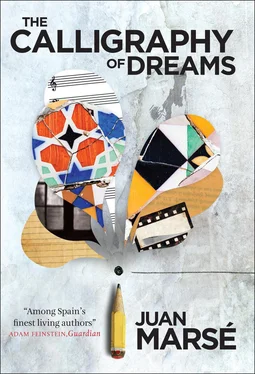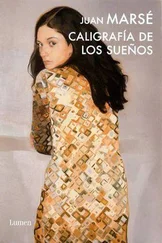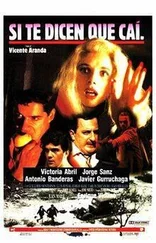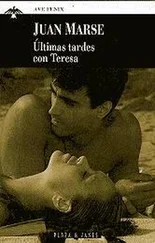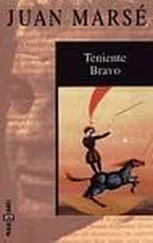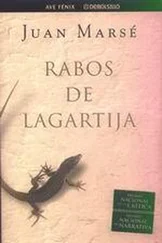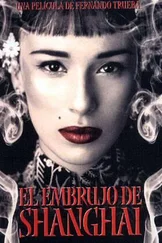Ringo does as he’s asked, dragging his feet, hoping to hear more. The drink passes to Señor Sucre’s thin hands, with their pastel-coloured patches of orange, blue and mauve. Ringo stares at them, intrigued, and tries to formulate a question about where exactly his father is now — and then finds himself awake, face down on the pillow.
Please don’t think about it anymore, son, don’t insist, don’t keep going over it in your mind, his mother advises him the next day. He’s not always involved in what you imagine, really he isn’t, either on his own or with others, still less with a knapsack on his back and wearing a balaclava, where on earth did you get that idea, and even less carrying weapons, My God, he’d never do that, there’s never been anything like that. That’s not how you should see him, not now or before, when there were still Germans up there … and we don’t know anything about the brigade, or about Manuel.
“It’s better if we lie low for a while, that’s all,” she adds. “We have to wait. Then we’ll see. Let that be enough for you for now. Because the fact is, everything is still the same. Your father’s away because of his work, and here at home we don’t know when he’ll be back. That’s what you’re to say if they ask you.”
She doesn’t know how long this is going to last either. If they’re lucky, only a few months. As for what was in the case he took to the Mirasol bar, he’s not to worry about it. The only thing he needs to know is that his father and some friends have been helping a lot of people, inside Spain and outside, and running risks.
“Nothing we should feel ashamed of, Son,” she says. “On the contrary. Even though you might find it hard to believe, almost everything your father has done has been to help other people. You mustn’t forget that. And please, don’t ask me anything more.”
“Yes, I know. He’s forbidden you to tell me anything.”
“You’re wrong. You’ll know what you ought to know when the time comes. But before he left, he asked me to explain a few things to you …”
“There’s no need,” he cuts in. “I know all about it. Contraband, that’s what it is, isn’t it? Him and Uncle Luis, and Manuel as well, and probably others in the brigade. On the border or close to it, I looked on the map. They smuggle in coffee for Señor Huguet, and roast it together in secret. And that’s why they’re going to arrest him as a smuggler, isn’t it?”
“I wish that was all there was to it, Son, I really do.”
She seems very tired. She is doing day shifts now, looking after an old woman in a traditional villa on Plaza Lesseps, and she goes to bed early. But today she will not go to sleep until she has reassured her son. I really wish that was all he did, she repeats, although your father wouldn’t like to hear me say so. He only does it to earn a few pesetas because he’s travelling anyway. Virginia tobacco, sheer nylon stockings, French cognac, expensive perfumes … not exactly worth running the risk of going to prison for.
“What is worth it,” she adds, “and what many people really thank him for, is the other thing he does, his work as a postman.”
“A postman?”
“A delivery man, if you prefer. He takes and brings news from comrades to their families. Parcels, letters, money … He’s a messenger, let’s say.”
But she doesn’t tell him everything, not by a long chalk, because the time isn’t ripe yet. She doesn’t mention Ramiro López, Señora Mir’s much loved and missed brother, who is an old friend of his father and Uncle Luis. She doesn’t tell him that Ramiro had been a member of an escape network on the French border, an employee at Canfranc station and close collaborator with the Customs chief there, when he was linked to a Resistance group working with Allied agents operating in Spain. She makes no mention at all of the relation between the Rat-catcher and people at the border; she doesn’t tell him that what he gets up to now is nothing like what he was doing six years earlier, well before they closed the railway tunnel, when the world was at war. Nor does she recall the incursions that in those days really were dangerous, when the train linked Canfranc with Zaragoza, Madrid and Lisbon, and his father and Uncle Luis collected clandestine correspondence at the border and handed it over in Zaragoza for it to be sent to the British embassy in Madrid, or brought it to the consulate in Barcelona. Nor does she tell him they passed themselves off as busy travelling salesmen with false documents, carrying perfumes and nylons but also photographs and letters hidden among the underwear, or mention the messages and visas the British consulate in Barcelona gave them to pass on to Ramiro López’s group and the Customs chief, counterfeit visas allowing Allied combatants and civilians to go through Spain to Portugal or Gibraltar, and does not reveal that many of them were Jews fleeing the German occupation of France. She does not mention any of this because it’s all in the past, and she does not now want to see the fear of those days in her son’s face; he’ll learn about it someday, if his father decides to tell him. All she says is that this is how he and Uncle Luis began, taking and bringing messages and money for the relatives of friends who could not return, and that they did this using contacts at the border who were linked to Señora Mir’s brother, and that they are still doing this, doing people favours, even though the tunnel at Canfranc is closed now, and the war finished more than three years ago. And that yes, it’s true, they had dealt in contraband goods, in fact that was their only reason for starting, and she of course had never approved of that, it was something that had been and still was the source of many stifled arguments and bones of contention. And anyway, Son, don’t go thinking they bring anything that valuable home, just a few things to help us get by, nothing that means we’ll no longer be poor …
*
A week later, two policemen turn up with a search warrant, which they enforce in a halfhearted, routine way. Ringo is not at home that day. His mother tells him about it that night without seeming the least bit worried. All this was predictable, Son, I’ve been expecting it for a long while. The next day she is summoned to police headquarters on Vía Layetana and interrogated, although to her this also seems equally routine, and even considerate. They didn’t behave like men from the Social Brigade, she says later. In answer to questions about the whereabouts and illegal activities of her husband and other members of the Municipal Cleansing and Pest Control Service, she gives the same response: the team went to do some work in Gerona, in a textile factory on the banks of the river Oñar, and since then she has had no news of her husband and has no idea when he will be back. It’s better not to lie to us, señora, I’m telling you for your own good. Look, sir, that’s how my husband usually behaves, he’s pretty inconsiderate, a wastrel, but I can’t believe he’s ever hurt anyone, I really can’t. I don’t know anything about any trips to Zaragoza or Canfranc, and nor does my son, still less any links he may have with black-marketeers or exiles.
“And you are to say the same if they ask you, Son. You don’t know anything,” she warns him while she is darning socks sitting on her bed next to the bedside table with the lamp giving off a faint red light next to the image of the Infant Jesus of Prague. As usual, the dignity and good sense of what she says help ward off fear and despair from the house’s precarious orderliness, this fragile imitation of hearth and home, protecting it from the harshness of a night like this one when, too tired to go out, she asks her son to drop by Señora Mir’s and take a bag of used clothes for her.
Читать дальше
